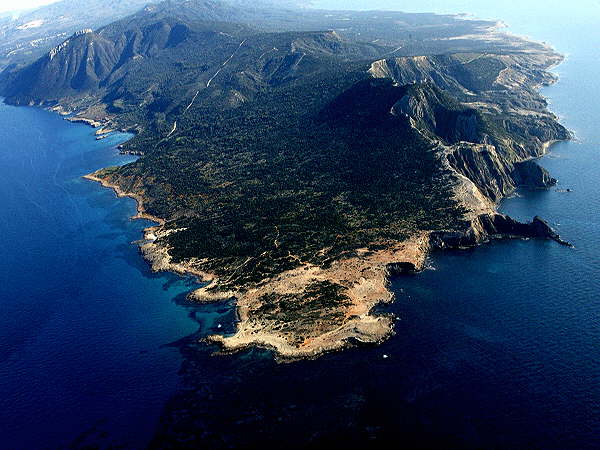Cabinet on Wednesday decided to postpone implementing the Akamas local development plan for another six months, as part of efforts to find ways of fulfilling all the goals it sets out to achieve.
The cabinet decision also entails a four-month window allowing for objections.
The ministers decided to publish the plan but specified its implementation begins on September 1 this year. The six-month period aims to give the government time to flesh out two of the plan’s core aims: the social and financial parameters.
Akel MP Nikos Kettiros said the development was a step in the right direction but described the entire process as “sloppy”, highlighting the glaring omission that the compensatory measures were not yet finalised.
“The work that has been done so far is sloppy and to a large extent, half-assed.”
According to Interior Minister Nicos Nouris, the ‘white zones’ which have been set out forbidding any development, will continue to be in effect. The areas will be evaluated and more studies will be caried out to cement what measures can be taken to meet the “socio-economy strategic goals which have been set”.
Green’s MP Charalambos Theopemptou said it was hard to discuss the essence of the plan as it had yet to be published. “We’re waiting for them to make it public so we can look through it and assess it.” It is due to be published in the official gazette of the Republic on Friday.
In a separate statement, Akel said “after all these years that the interior and finance ministers had before them, to estimate the costs and finalise the proposals, have yet fallen short of the mark,” the party noted.
Koulla Michael, director of Terra Cypria’s Cyprus Environmental Studies Centre told the Cyprus Mail it was evident that the financial element was the main sticking point. Previously, the estimates of the government’s compensation to landowners amounted to around €1 billion.
The compensation measures are linked to provisions in the plan that forbid development in certain zones in this sensitive environmental area and one of the few undeveloped coastal regions in Cyprus. Landowners have previously highlighted their property value has gone down to nothing after they fell into protected area zones for the past 33 years.
The government had pledged the plan would be finalised before the end of the current presidential term however the six-month delay has been seen as a way to pass the buck to the new government, which takes effect on March 1.
“Provided all the environmental conditions the plan sets out will be adhered to, we as Terra Cypria are in agreement with this plan. We want this to move forward,” Michael said.
“Ideally we would have liked to see the compensation measures included” however as long as the six-month period is utilised properly so as to conduct proper research and dialogue and not move forward with rushed decisions, then there shouldn’t be cause for concern, she noted.
“There should be solutions that leave communities satisfied,” Michael added. Beyond compensation, other ideas which have been bandied about include land swapping and beneficial building coefficients.
According to Nouris, on January 11, 2016 following a cabinet decision, the town planning began preparing the Akamas local plan. This was based on a strategic plan set out by an interior ministry report.
The development report defines the broader development strategy which encompasses environmental protection and safeguards the social and economic impacts of implementing the plan, Nouris said.
He added the town planning council on Tuesday rubberstamped the report saying all goals related to the protection and management of nature had been met.
“However, because economic and social aspects of the goals have not been met, cabinet authorised the interior minister to publish the plan and delay its implementation for six months.”
Communities affected by the plan including Inias, Neo Chorio, Droushia and Kathiksa had sent a letter to President Nicos Anastasiades earlier in the day on Wednesday, saying the plan adopted all suggestions by environmental groups but failed to consider any of the opinions of the affected communities.
The environment department’s first opinion on the plan in 2021 specified development could not occur within 500 metres of Natura 2000 areas, while supermarkets, petrol stations and shopping centres would not be permitted within 300 metres of the Akamas villages development limits.
The department also banned the creation of parking spots and refreshment centres within the Natura 2000 areas. It also specified the residential zone of Droushia should not be extended west of the existing one, while the tourist zoning of Kathikas is to be abolished.
Part of the government’s plans include building asphalt roads and controlled entry points in the government-owned forest land, as well as create refreshment areas and services inland and on two beaches.







Click here to change your cookie preferences